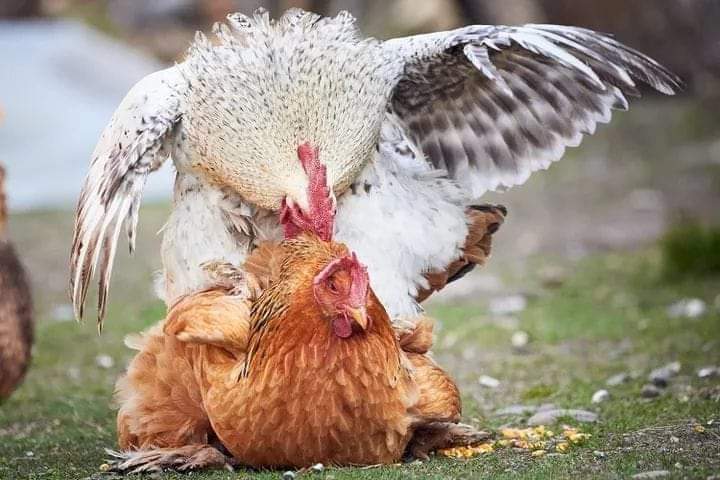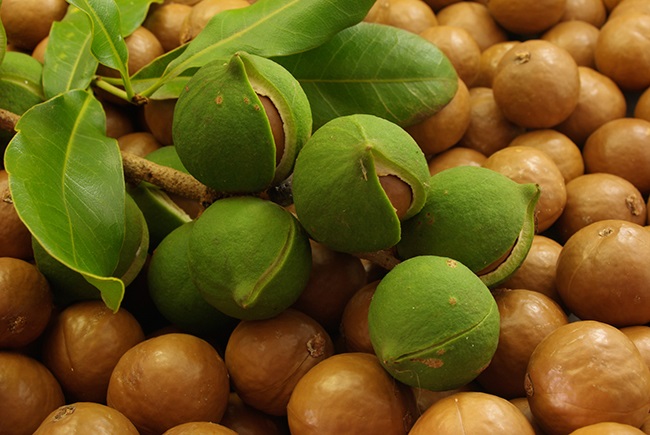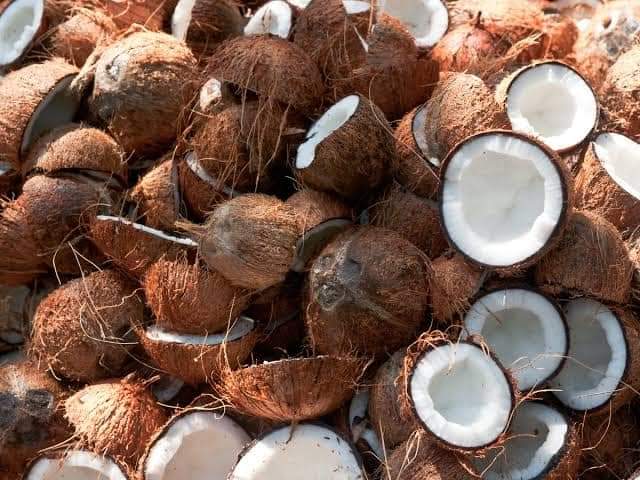Interesting Facts Of Chicken Egg Fertility That You May Not Know.
 It is possible to have a rooster and a hen that are active but a hen can still lay eggs that are not fertile:
It is possible to have a rooster and a hen that are active but a hen can still lay eggs that are not fertile: I know you may be wondering how, and here is the explanation.
I know you may be wondering how, and here is the explanation.Unlike other birds where you find partners, in chickens there is no courtship or romance. A rooster just forces himself on the hen. So what happens is when a rooster mates a hen, his injected semen is stored in numerous sperm storage tubules (SSTs) located in the area where the hen’s uterus joins the vagina.
 But this only happens provided the hen likes the rooster. If she doesn’t, she can release out the semen to avoid hatching his offspring. Therefore a hen may still proceed to lay eggs that are not fertile despite even mating with a rooster every day.
But this only happens provided the hen likes the rooster. If she doesn’t, she can release out the semen to avoid hatching his offspring. Therefore a hen may still proceed to lay eggs that are not fertile despite even mating with a rooster every day. Even if the hen approves the rooster, some eggs may still not be fertile:
Even if the hen approves the rooster, some eggs may still not be fertile: Since the sperm is released shortly after an egg is laid, and each egg takes approximately 25 hours to develop, an egg produced on the day of mating will not be fertile.
Since the sperm is released shortly after an egg is laid, and each egg takes approximately 25 hours to develop, an egg produced on the day of mating will not be fertile. An egg laid the next day may or may not be fertile, depending on the timing. An egg laid on the third day definitely should be fertile.
An egg laid the next day may or may not be fertile, depending on the timing. An egg laid on the third day definitely should be fertile. So as you can see your hen can still have the first two or three eggs that are not fertile despite the hen and a rooster having mated.
So as you can see your hen can still have the first two or three eggs that are not fertile despite the hen and a rooster having mated. You don’t need a rooster everyday for the hen to continue laying fertile eggs:
You don’t need a rooster everyday for the hen to continue laying fertile eggs:The amount of time during which the hen will continue to lay fertile eggs depends on how much sperm fills the SSTs, which are capable of storing semen from multiple matings and multiple roosters.
 Highly productive hens generally remain fertile longer than hens that lay at a slower rate. The average duration of fertility from a single mating is 10 to 14 days.
Highly productive hens generally remain fertile longer than hens that lay at a slower rate. The average duration of fertility from a single mating is 10 to 14 days. So it is possible that once your hen has mated with a rooster you can even take the rooster away and you can still have fertile eggs for the next 14 days.
So it is possible that once your hen has mated with a rooster you can even take the rooster away and you can still have fertile eggs for the next 14 days. For first time layers if a rooster has mated with a hen, all her eggs are not always fertile:
For first time layers if a rooster has mated with a hen, all her eggs are not always fertile: Generally speaking, a hen who has mated will be fertile between 7 and 10 days after. It takes that long for the sperm to reach the oviduct where eggs are made.
Generally speaking, a hen who has mated will be fertile between 7 and 10 days after. It takes that long for the sperm to reach the oviduct where eggs are made. So it is possible that after mating, your hen can still continue to lay eggs that are not fertile for the next 10 days. This is why it is encouraged that for hens that are laying for the first time it is better to eat the eggs for the first two or three weeks instead of attempting to hatch them.
So it is possible that after mating, your hen can still continue to lay eggs that are not fertile for the next 10 days. This is why it is encouraged that for hens that are laying for the first time it is better to eat the eggs for the first two or three weeks instead of attempting to hatch them.Not all roosters have fertile sperm:
 This is a sad one. Just like in humans, even in chickens we also have roosters that are infertile.
This is a sad one. Just like in humans, even in chickens we also have roosters that are infertile.




